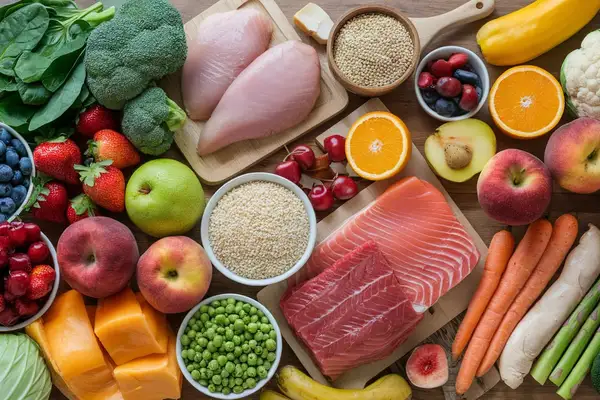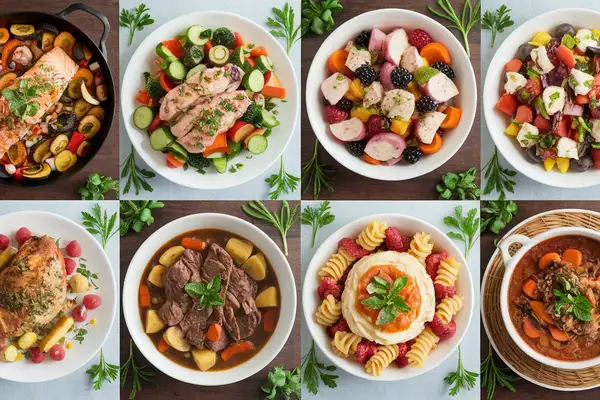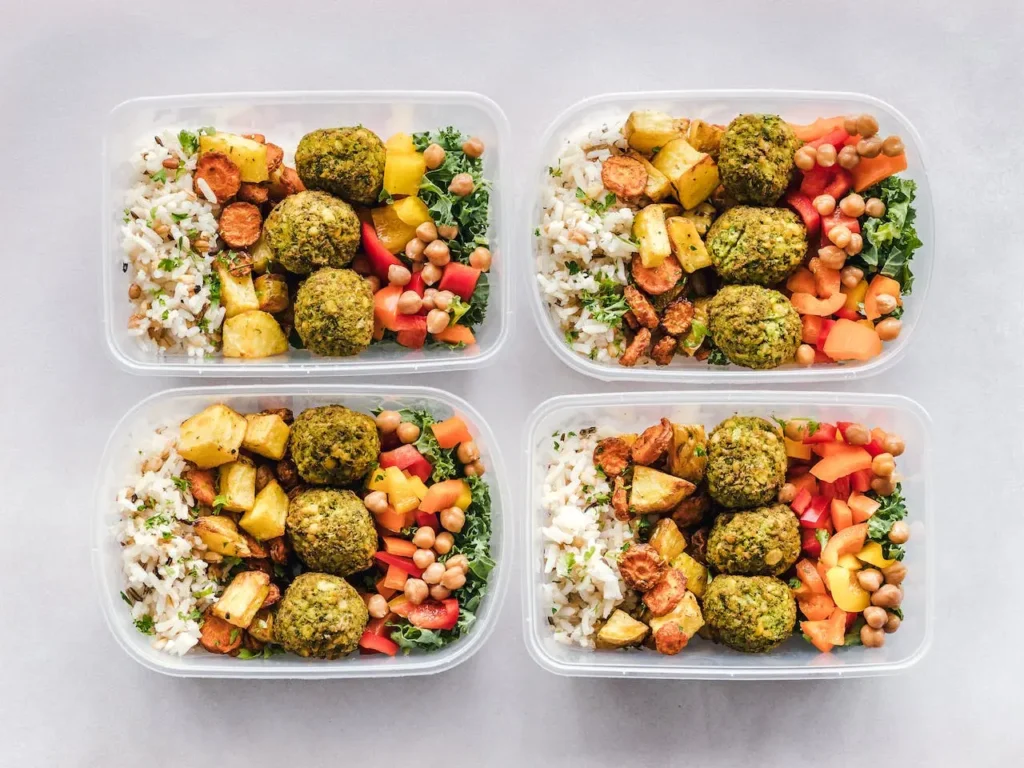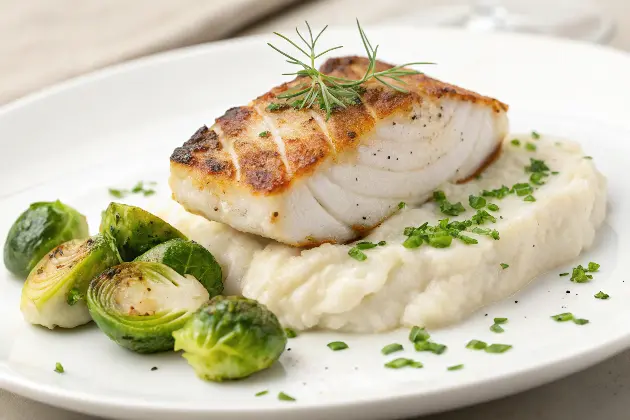Free 7-Day Alkaline Diet Meal Plan
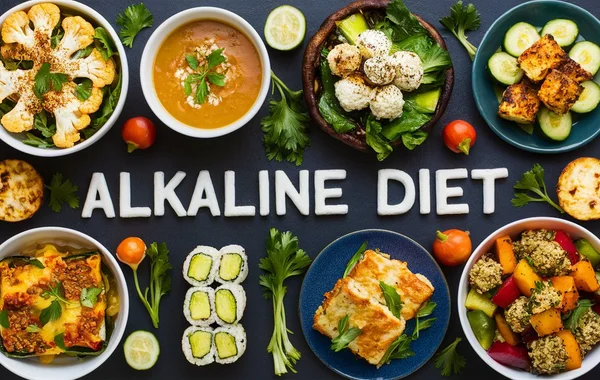
This post may contain affiliate links, meaning I may earn a commission if you make a purchase, at no extra cost to you. I only recommend products I trust. Thank you for your support.
Are you looking to improve your overall health, reduce inflammation, and potentially shed some extra pounds? An alkaline diet might be just what you need.
The alkaline diet is all about balancing the pH levels in your body by eating more alkaline foods and avoiding acidic ones.
The idea is simple: eat foods that help your body maintain a slightly alkaline pH, which is thought to improve energy levels, better digestion, and reduce inflammation.
But how do you actually put this into practice? Let’s dive into a comprehensive 7-day alkaline diet meal plan that’s not only easy to follow but also delicious and nourishing.
What is an Alkaline Diet?
The alkaline diet is based on the idea that certain foods can affect the pH balance of your body. The pH scale ranges from 0 to 14, with 7 being neutral. Below 7 is acidic, and above 7 is alkaline.
At its core, the alkaline diet encourages consuming plenty of fruits, vegetables, and plant-based proteins while limiting processed foods, meat, and dairy.
Alkaline Diet Food List: What to Eat
Fruits (Highly Alkaline)
- Apples
- Cherries
- Pineapple
- Avocado
- Bananas
- Apricots
- Cantaloupe
- Berries (strawberries, blueberries, raspberries)
- Citrus fruits (lemons, oranges)
- Watermelon
- Papaya
Vegetables (Highly Alkaline)
- Broccoli
- Beets
- Asparagus
- Leafy greens (spinach, kale, Swiss chard)
- Garlic
- Carrots
- Cabbage
- Cauliflower
- Brussels sprouts
- Cucumber
- Tomatoes
- Root vegetables (sweet potatoes, radishes)
Nuts and Seeds (Alkaline)
- Chestnuts
- Pine nuts
- Raw pumpkin seeds
- Almonds
- Flaxseeds
- Chia seeds
Legumes (Alkaline)
- Lentils
- Chickpeas
- Black beans
- Kidney beans
- White beans
Healthy Fats (Neutral to Alkaline)
- Avocado oil
- Coconut oil
- Olive oil
Grains (Slightly Alkaline)
- Quinoa
- Millet
- Amaranth
- Sprouted grains
Plant-Based Proteins (Alkaline)
- Tofu
- Tempeh
- Other plant-based protein sources
Beverages (Alkaline)
- Unsweetened fruit juices
- Mineral water
- Herbal teas
- Almond milk
- Coconut milk
Herbs and Spices (Alkaline)
- Garlic
- Ginger
- Turmeric
- Most herbs and spices
Foods to Avoid (Acidic Foods)
- Meat
- Poultry
- Fish
- Dairy products (milk, cheese, yogurt, ice cream)
- Eggs
- Most grains (white and brown rice, oats, wheat)
- Alcohol
- Soda
- Processed foods
- Walnuts, cashews, peanuts, Brazil nuts, and pecans
7-Day Alkaline Diet Plan (Alkaline Diet Menu)
This 7-day alkaline diet meal plan includes a variety of nutrient-dense, plant-based meals that are designed to help balance your body’s pH levels.
Each day offers a carefully curated selection of alkaline breakfast, lunch, dinner, and snacks, featuring high alkaline recipes and foods.
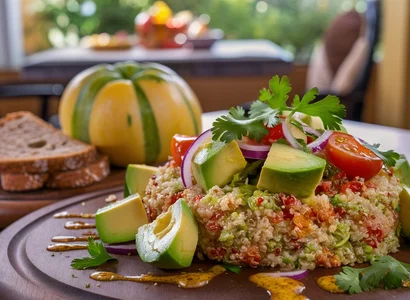
Day 1
Breakfast:
- Alkaline Green Smoothie: Blend spinach, kale, cucumber, green apple, ginger, and lemon. (1 cup spinach, 1/2 cup kale, 1/2 cucumber, 1 green apple, 1 inch ginger, juice of 1 lemon, 1 cup water)
Lunch:
- Quinoa and Avocado Salad: Toss quinoa, avocado, cucumber, cherry tomatoes, olive oil, and lime juice. (1 cup cooked quinoa, 1 avocado, 1/2 cucumber, 1/2 cup cherry tomatoes, 2 tbsp olive oil, juice of 1 lime)
Dinner:
- Roasted Vegetables with Quinoa: Roast carrots, sweet potatoes, zucchini, and red bell pepper, and serve with quinoa. (1 carrot, 1 sweet potato, 1 zucchini, 1 red bell pepper, 1 cup cooked quinoa, 2 tbsp tahini)
Snacks:
- Raw Almonds and Fresh Berries: Enjoy a handful of raw almonds and fresh berries. (1/4 cup raw almonds, 1/2 cup fresh berries)
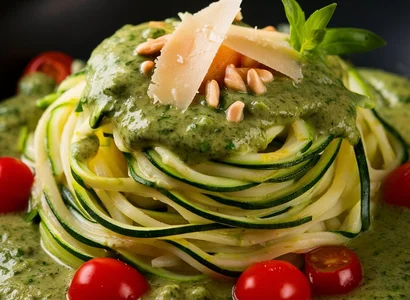
Day 2
Breakfast:
- Chia Seed Pudding: Mix chia seeds with almond milk and top with blueberries and honey. (1/4 cup chia seeds, 1 cup almond milk, 1/2 cup blueberries, 1 tbsp honey)
Lunch:
- Zucchini Noodles with Pesto: Toss zucchini noodles with homemade basil pesto and cherry tomatoes. (2 medium zucchinis, 1 cup fresh basil, 1/4 cup pine nuts, 1/4 cup olive oil, 2 cloves garlic, salt and pepper to taste, 1/2 cup cherry tomatoes)
Dinner:
- Baked Sweet Potato with a Side Salad: Bake a sweet potato and serve with avocado and mixed greens. (1 sweet potato, 1/2 avocado, 2 cups mixed greens, 2 tbsp lemon vinaigrette)
Snacks:
- Sliced Bell Peppers with Hummus: Enjoy sliced bell peppers with hummus. (1 bell pepper, 1/4 cup hummus)

Day 3
Breakfast:
- Oatmeal with Almond Milk and Fresh Fruit: Cook oatmeal with almond milk and top with strawberries, bananas, and flaxseeds. (1/2 cup oatmeal, 1 cup almond milk, 1/2 cup strawberries, 1 banana, 1 tbsp flaxseeds)
Lunch:
- Lentil Soup: Cook lentils with carrots, celery, onion, garlic, and turmeric. (1 cup lentils, 2 carrots, 2 celery stalks, 1 onion, 2 cloves garlic, 1 tsp turmeric)
Dinner:
- Stir-Fried Tofu and Vegetables: Stir-fry tofu with broccoli, bell peppers, and mushrooms in tamari sauce. (1/2 block tofu, 1 cup broccoli, 1 bell pepper, 1 cup mushrooms, 2 tbsp tamari sauce)
Snacks:
- Cucumber Slices with Lemon Juice and Sea Salt: Enjoy cucumber slices with lemon juice and sea salt. (1 cucumber, juice of 1/2 lemon, pinch of sea salt)
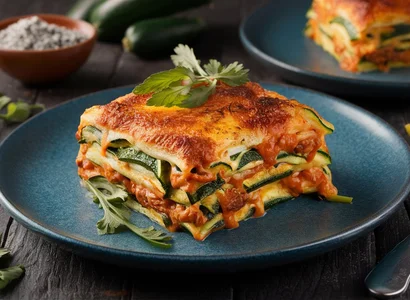
Day 4
Breakfast:
- Smoothie Bowl: Blend banana, spinach, and mango with almond milk, and top with granola and chia seeds. (1 banana, 1 cup spinach, 1/2 cup mango, 1 cup almond milk, 1/4 cup granola, 1 tbsp chia seeds)
Lunch:
- Stuffed Bell Peppers: Stuff bell peppers with quinoa, black beans, corn, and diced tomatoes. (2 bell peppers, 1 cup cooked quinoa, 1/2 cup black beans, 1/2 cup corn, 1/2 cup diced tomatoes)
Dinner:
- Zucchini Lasagna: Layer zucchini slices with marinara sauce, spinach, and cashew cheese. (2 zucchinis, 1 cup marinara sauce, 2 cups spinach, 1/2 cup cashew cheese)
Snacks:
- Apple Slices with Almond Butter: Enjoy apple slices with almond butter. (1 apple, 2 tbsp almond butter)
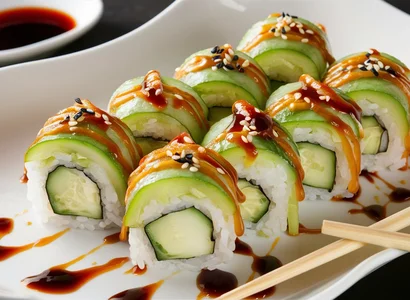
Day 5
Breakfast:
- Alkaline Berry Smoothie: Blend mixed berries, banana, spinach, and coconut water. (1/2 cup mixed berries, 1 banana, 1 cup spinach, 1 cup coconut water)
Lunch:
- Cucumber and Avocado Sushi Rolls: Wrap cucumber, avocado, and carrots in nori with brown rice. (1/2 cucumber, 1/2 avocado, 1/2 carrot, 1 sheet nori, 1/2 cup brown rice)
Dinner:
- Cauliflower Rice Stir-Fry: Stir-fry cauliflower rice with snap peas, bell peppers, and carrots in sesame ginger sauce. (1 cup cauliflower rice, 1/2 cup snap peas, 1 bell pepper, 1/2 cup carrots, 2 tbsp sesame ginger sauce)
Snacks:
- Mixed Nuts and Dried Apricots: Enjoy a handful of mixed nuts and dried apricots. (1/4 cup mixed nuts, 1/4 cup dried apricots)
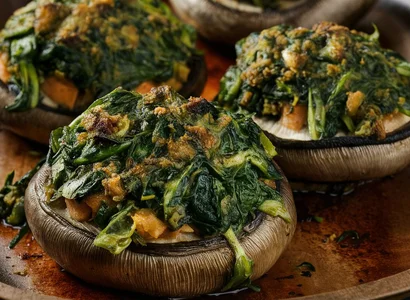
Day 6
Breakfast:
- Buckwheat Pancakes with Fresh Berries: Make buckwheat flour pancakes and top with blueberries and maple syrup. (1 cup buckwheat flour, 1 cup almond milk, 1/2 cup blueberries, 2 tbsp maple syrup)
Lunch:
- Kale and Quinoa Salad: Toss kale and quinoa with pomegranate seeds, pumpkin seeds, and lemon-tahini dressing. (2 cups kale, 1 cup cooked quinoa, 1/4 cup pomegranate seeds, 2 tbsp pumpkin seeds, 2 tbsp lemon-tahini dressing)
Dinner:
- Baked Portobello Mushrooms with Garlic Spinach: Bake Portobello mushrooms and serve with sautéed garlic spinach. (2 Portobello mushrooms, 2 cups spinach, 2 cloves garlic, 2 tbsp olive oil)
Snacks:
- Carrot Sticks with Almond Dip: Enjoy carrot sticks with almond dip. (2 carrots, 1/4 cup almond dip)
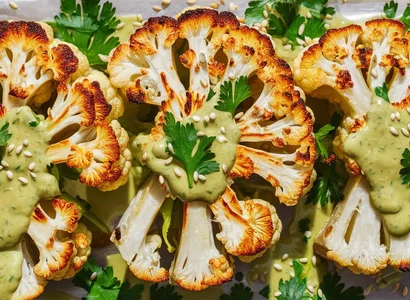
Day 7
Breakfast:
- Avocado Toast on Spelt Bread: Top spelt bread with mashed avocado and cherry tomatoes. (2 slices spelt bread, 1 avocado, 1/2 cup cherry tomatoes)
Lunch:
- Spring Vegetable Soup: Cook asparagus, peas, leeks, and spinach in a light vegetable broth. (1 cup asparagus, 1/2 cup peas, 1 leek, 2 cups spinach, 4 cups vegetable broth)
Dinner:
- Roasted Cauliflower Steaks with Tahini Dressing: Roast cauliflower slices and drizzle with tahini dressing, served with quinoa. (1 head cauliflower, 1/4 cup tahini, juice of 1 lemon, 1 clove garlic, 1 cup cooked quinoa)
Snacks:
- Celery Sticks with Nut Butter: Enjoy celery sticks with nut butter. (2 celery stalks, 2 tbsp nut butter)
Benefits of an Alkaline Diet
1. Improved Bone Health
- An alkaline diet is rich in fruits and vegetables that are high in magnesium and potassium, which help maintain bone density and reduce the risk of osteoporosis.
- By reducing the intake of acidic foods, which can leach calcium from bones, this diet supports stronger bones over time.
2. Enhanced Muscle Function
- Alkaline foods can help maintain muscle mass, particularly as we age. Acidic diets may contribute to muscle loss, whereas an alkaline diet supports better muscle preservation and function.
3. Better Digestion
- An alkaline diet emphasizes whole, plant-based foods that are high in fiber, which promotes healthy digestion and regular bowel movements.
- This can reduce the risk of digestive issues such as constipation and bloating.
4. Reduced Inflammation
- Alkaline foods, particularly fruits and vegetables, contain antioxidants and anti-inflammatory compounds that can help reduce inflammation in the body.
- Lower inflammation levels are associated with a decreased risk of chronic diseases like heart disease and arthritis.
5. Enhanced Energy Levels
- Eating alkaline foods can lead to more stable energy levels throughout the day.
- By reducing acidic foods that can cause energy crashes, you may experience fewer fluctuations in your energy and mood.
6. Weight Management
- An alkaline diet encourages the consumption of nutrient-dense, low-calorie foods like fruits, vegetables, and whole grains which reduce cravings and support healthy weight management.
7. Improved Kidney Function
- Alkaline diets help reduce the burden on your kidneys by minimizing the intake of acidic foods that can cause kidney strain.
- This can help prevent kidney stones and improve overall kidney health.
8. Boosted Immune System
- The high concentration of vitamins, minerals, and antioxidants in an alkaline diet supports a stronger immune system, helping your body fight off infections and illnesses more effectively.
9. Better Skin Health
- The high intake of fruits and vegetables in an alkaline diet provides essential nutrients that promote healthy skin.
- Antioxidants in these foods help protect against skin damage and can lead to clearer, more radiant skin.
Alkaline Diet Tips
- Focus on Alkaline Foods: The core of an alkaline diet is consuming foods that are believed to promote alkalinity in the body such as fruits, vegetables, and legumes.
- Incorporate Plenty of Fresh Produce: Fresh produce, especially raw or lightly cooked, is rich in alkaline minerals like potassium and magnesium.
- Start Slow: If you’re new to the alkaline diet, start by gradually incorporating more alkaline foods into your meals. Swap out acidic foods for alkaline alternatives one meal at a time.
- Stay Hydrated: Drink plenty of water, and consider adding a slice of lemon or lime to make it more alkaline. Herbal teas, coconut water, and green juices are also great options.
- Plan Your Meals: Having an alkaline meal plan in place makes it easier to stick to the diet. Prep meals ahead of time to avoid reaching for acidic, convenience foods.
- Monitor Portion Sizes: While many alkaline foods are nutrient-dense, it’s still important to maintain appropriate portion sizes for overall health and weight management.
Conclusion
The 7-day alkaline diet for beginners offers a refreshing approach to eating that focuses on whole, plant-based high alkaline foods.
While the scientific evidence supporting the alkaline diet’s claims is mixed, many people report feeling more energized and healthier when following this eating pattern.
Remember, the key to any successful diet is sustainability and balance. If you’re interested in trying the alkaline diet, start by gradually incorporating more alkaline foods into your meals and see how you feel.
As always, it’s a good idea to consult with a healthcare professional or registered dietitian before making significant changes to your diet, especially if you have any underlying health conditions.
By focusing on nutrient-dense, alkaline forming foods, you may discover a new way of eating that leaves you feeling vibrant, energized, and ready to take on whatever life throws your way.
- The best diet for candida
- 14-day real food diet
- Clean eating meal plan
- 7 day military diet
- Low glycemic diet
- 7-day high fiber diet plan
- Simple and affordable Aldi meals for the week
- 7-day Mounjaro diet plan
- 7-day Dukan diet for the attack phase
- Easy BRAT diet foods
- 7-day keto diet plan
- Mounjaro side effects
- What to eat when taking Ozempic
- 14-day Atkins diet phase 1
- 7 day diet to lower triglycerides
- 7 day anti inflammatory recipes
- 21 day Fix meal plan
FAQs
Is alkaline water good for you?
Yes, alkaline water can be beneficial as it helps to neutralize acid in the body, promoting better hydration and overall balance. It’s especially good for those who want to maintain a balanced pH level.
Is oatmeal alkaline?
Yes, oatmeal is considered alkaline and can help with acid reflux and other stomach issues. As an alkaline food, it neutralizes stomach acid, making it beneficial for those with acid reflux.
Is ginger alkaline?
Yes, ginger is considered alkaline and is a great addition to an alkaline diet. It also has anti-inflammatory and digestive benefits.
What are the top 10 most alkaline foods?
Spinach
Kale
Cucumbers
Broccoli
Avocado
Zucchini
Celery
Bell peppers
Lemons and limes (alkaline-forming)
Almonds
Is banana acidic or alkaline?
Bananas are alkaline foods, making them a good fruit to include in an alkaline diet. They are also rich in potassium, which helps maintain the body’s electrolyte balance.
Is chicken alkaline?
No, chicken is considered an acidic food. It’s best to limit or avoid chicken when following a strict alkaline diet.
Which drink is alkaline?
Herbal teas, especially those made from peppermint, ginger, and chamomile, are alkaline and beneficial for maintaining a balanced pH. Alkaline water is another great option.
Which fruit is most alkaline?
Lemons and limes with a pH of between 2 and 3, though acidic in taste, are among the most alkaline-forming fruits once metabolized in the body. They are excellent for promoting an alkaline environment.
Are cucumbers alkaline?
Yes, cucumbers are highly alkaline. They have a pH of 5.12 to 5.78 and are a refreshing addition to an alkaline diet. They are also hydrating and rich in vitamins and minerals.
